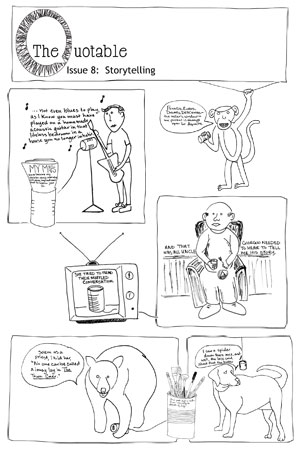I drove through blank farmland to pine mountain canyons to downtown, where no one asks your name for fear of knowing it.
I wouldn’t accept directions, though I didn’t know the way.
Dingy and desperate, Reno is a ruin I inhabit a while.
Sneaker prints on the elevator walls and a dying pigeon below the arrow buttons.
The buffet smell reaches to the fourteenth floor.
Tired and staring, during a long red light at the big pink RENO sign.
The hundred other signs blinked on and on, like a beggar’s plea, until the words lost all purchase.
Like how stolen money spends different than won money spends different than borrowed money spends different than found money spends different than earned money.
The cards, the dice, the spinning symbols and numbers—it all starts with a plan.
But it ends with a man daring God to forsake him.
Virginia Street says God’s pretty good at forsaking.
A ghost-man by a casino door asks twenty-five cents for a sody-pop.
The QUARTER SLOTS sign flashes above him.
Before long, you get the casino eyes.
It hurts to blink, but you can’t seem to blink enough.
Money loses the meaning it had in the street.
I get a note under the door of my room.
It says they’ve sold the hotel and will only take cash for the next twelve hours.
A scream rises from the strip every ten minutes.
There are words in the scream, but they don’t make it to my window.
In my high, fine mood, I cheat around the edges.
I sully myself a little with a minor scam, inventing a more plausible life to tell the store clerks.
I sully myself to be closer to you, my friend.
I sully myself a little just to belong.
Crapping my pants outside the Wal-Mart from the bad casino food, wishing there were more stars—something to compensate for all the nothing.
Small small small
Walking from the parking lot to the strip club, you say you can’t afford bankruptcy.
In the strip club, a girl dressed as Cleopatra writhes to a song whose chorus is: If I was you, I’d kill myself.
It’s a lot to take in.
And it’s really just a lot to take.
Small small small
I want to tell you that it isn’t that the world has grown so massive.
It is that we are smaller than even we feel.
Small to the stars that the casino lights obscure.
Small to the hotels full of worn-out, malodorous rooms.
Small to the satellites pouring third-rate entertainment over all creation.
Small to the restaurants that feed us.
Small to the vermin who will inherit our bodies.
Small to the rental-car companies we betray.
Small to the mother or father who leaves for greener pastures.
Small to the next generation that presses itself upon us through the panties of women we idly or ardently desire.
Small to the friend who chases death and leaves us with just a corpse and a shard of glass in our guts.
God would need to be unimaginable—omnipotent, omniscient, omnipresent, for us not to be small.
Love will need to be all we hope for, if we are to matter in a small way, for just a little while.
We followed the billboards but couldn’t find it.
I asked a middle-aged woman in a princess costume where the bikini girls dealt blackjack.
And she tried to sell me a time-share.
For Halloween, I was the worst kind of gambler—the kind with a point to prove.
Resentment wheeled me from the ATM to the felt table and back.
Resentment for the losses, but even more for the wins that came at the wrong time, the incomprehensible forgiveness of women, the money that never meant what I’d sworn it would, the unpredictable sweetness and charity of the world, which only served to confound my indictment of it.
Hours later, the cards aren’t even cards.
They are pure transformation, freed from my banal wishes, like a treasure I hid so I would never find it.
Small small small
I’d hoped I’d be a hand reaching into hell, a holy parolee bearing gifts.
But I can’t even get to the felt tables.
Dollars and resentment prevent it.
Pulling the lever, turning the prayer wheel the wrong way.
The signs say LOOSEST SLOTS IN TOWN
But they aren’t loose enough to let the light in.
They aren’t loose enough to let me out.
Amid the bells and sirens of the casino floor, people’s lives are being unwrapped, their fates recalculated again and again.
A borrowed quarter rattling into a slot machine keeps the day of reckoning at bay.
I hear the promise, that I don’t have to be myself, not yet.
It’s worth a quarter.
In that reprieve, I dream of the millions I secretly deserved all those years, of the most awful angels granting wishes.
Someone told me that the years of your life are like casino chips—20s, 30s, 40s.
And you don’t know what they’re worth until the ball stops, or the last card drops, and you’re back out on a different kind of Virginia Street.
It’s hard here to remember that the cards are truly shuffled, that their order has no meaning or intention.
This is no metaphor.
I’m talking about playing cards.
It’s hard to remember that strangers don’t know my sins.
It’s hard to remember that the late train and the storm cloud think nothing of me.
I know better.
And that should matter more than it does.
Small small small
A big night on the town ends by eleven.
Thirty years old and small.
No longer a young man exactly.
No longer a work in progress.
In the car, I wanted to tell you that maybe I did have big feelings.
Maybe I did speak the word God unashamed.
But I woke this morning in the pants of a man, not a saint or a meteor.
And now I have to wear those pants.
Small small small
Counting a night of sobriety as a kind of victory, like a single bullet in a war against something so big that I can’t make out its shape.
I wanted to tell you that our victories are small, but our lives are long.
So do yourself a favor, any favor.
No one said you had to like it, or even mean it.
But do try to live.
Now the whiskey opens no more doors, no more mouths, no more eyes.
Sin has lost its kick, you say.
And that’s its own kind of blasphemy here.
We wanted to be alone, but beloved.
Alone, but in charge.
Alone, but with sandwiches night or day.
That’s why the world looks like it does.
Small small small
I hate to say it and I hate to hear it.
But we are no geniuses.
Our drinks are nonalcoholic and our night is decidedly nonapocalyptic.
I feel like a fugitive who forgot where to turn himself in.
Small small small
The sour midnight hours make me want most what surrounds me.
I can’t seem to touch any of it.
The streets ring with stray shouts, or the echo of a shout, or the puzzle of what was shouted, or the anticipation of the next shout.
The flashing flecks on the dirty horizon read CIRCUS, then CIRCUS, then CIRCUS again.
And I feel like one of the old Reno motels—all cracked plaster and hyperbole.
They say there was a desert in this valley—scrub and sage.
They say the river teemed with wedding rings.
The names of its hotels still tell of romance or thrift.
Its railroad still speaks of our need to limit the infinite.
Its casinos still speak to our need to make the limited infinite.
And the muttering denizens still warn us, gently, of those desires.
Mole-blind from a life in the dirt, I hunger for a transformation my eyes were not made to see.
And sometimes I’m so hungry that the world doesn’t matter much at all.
Like every teenager out to get ripped, wrecked, fucked up, we know we must be broken, like a blackjack dealer breaking a hundred-dollar bill into chips with a holler, if we are to become more than we are.
We can’t become infinite in the pants we wear.
Small small small
Transformation came at me sideways, and from the blindest side.
The valet took, but wouldn’t acknowledge, my dollar bill.
Ghostly filthy men drifted down Virginia Street.
I left my friend alone again.
The sky was blue and cloudless, huge and crushing, like the boredom of God Himself on All Saints Day in Reno.
—
Colin Dodds grew up in Massachusetts and completed his education at The New School in New York City. Norman Mailer wrote that Dodds’ novel The Last Bad Job showed “something that very few writers have; a species of inner talent that owes very little to other people.” Dodds’ novels What Smiled at Him and Another Broken Wizard have been widely acclaimed by critics and readers alike. His screenplay, Refreshment – A Tragedy, was named a semi-finalist in 2010 American Zoetrope Contest. Two books of Dodds’ poetry—The Last Man on the Moon and The Blue Blueprint—are available from Medium Rare Publishing. Dodds’ writing has also appeared in a number of periodicals, including The Wall Street Journal Online, Folio, Explosion-Proof, Block Magazine, The Architect’s Newspaper, The Main Street Rag, The Reno News & Review and Lungfull! Magazine. He lives in Brooklyn, New York, with his wife Samantha.










